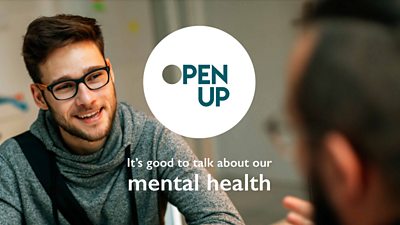What might happen?
Sometimes at work, people can become psychologically unwell very quickly (just as they might become physically unwell or injured) – this may be in the form of a panic attack, an unexplained loss of functioning due to feeling overwhelmed or distressed, a psychotic episode (where the person becomes detached from reality) or perhaps feeling desperate and even suicidal. In these circumstances, it’s vital to get appropriate professional assistance for the individual as soon as possible. In order to do this, it’s important to assess the risks in order to determine the best course of action. As a colleague or manager in the workplace, you may unexpectedly find yourself in this situation.
What should I do?
Every situation will be different, and you will need to determine the best course of action based on the specific circumstances – there will be many decisions to make about where to take the person, how long to stay with them, when they should go home, who should be contacted, how to follow up etc and these will need to be made at the time based on the assessment of risk. The flow chart below should help you to identify the best course of action in a mental health emergency at the ��������.
Mental health crisis
Some suggested action are given below based on the perceived levels of risk the affected individual presents to themselves:
Low risk
The individual is clearly distressed and requires help but has not mentioned suicidal thoughts or intentions (you can ask the question directly to be sure); you are concerned about their immediate wellbeing. Following actions advised:
Take the person to a quiet, safe place and help them to calm down. Sometimes listening may be enough.
If in a �������� building, contact your local Mental Health First Aider (MHFA) for help (names are displayed in kitchen hubs and in the Useful Documents section of this page.
Encourage the individual to access NHS mental health services – this could be their GP or community mental health team (if already engaged with local mental health services) who will know their medical history and be able to direct them to the appropriate service.
Signpost to the ��������’s Employee Assistance Programme (EAP) for psychological support (call 0800 042 0140 in UK). Details in Recommended Links. You could help them make the call if needed.
Ask if the individual would like someone to come and meet them to take them home (bear in mind they may be happier to stay at work if they feel Ok).
Encourage the individual to talk to someone they trust (friend, family member or a mental health helpline such as the Samaritans) and perhaps their manager or HR Helpdesk if they have specific work related concerns.
Medium risk
The individual is clearly distressed and has mentioned suicidal thoughts, although does not intend to harm themselves immediately (ask the question directly to be sure). In addition to the actions described for 'Low risk', you could also consider:
- Signpost the individual to their GP in order to access their local Crisis Team if emergency support is needed. In some areas self-referrals to the Crisis Team are (via GP) allowed too. Crisis Teams are groups of mental healthcare professionals, such as psychiatrists and psychiatric nurses, who work with people experiencing severe psychological and emotional distress.
- If necessary, with the individual’s consent, you could contact their GP or mental health team on their behalf to make an emergency appointment for that day (out of hours contacts will be available too). If the individual does not consent to this, but you now have serious concerns about them, the actions in the high risk box should be followed.
- You may also want to approach a senior manager or HR for advice.
High risk
You have reason to believe that the individual plans to seriously harm themselves or complete suicide, or has taken steps to do so already; this requires urgent action. Following actions advised without delay:
- Encourage the individual to access NHS mental health services, ideally their own GP, as a matter of urgency and help to ensure that this happens – you could go with them if necessary or ensure someone else does.
- If the risk is very serious and immediate (i.e. the person has already taken steps to harm themselves or is about to) or the above steps have been unsuccessful, then URGENT ACTION is required - you can take the person to the nearest A&E department and ask for them to be referred to the local Crisis Team or you can call the emergency services (666 from a �������� building or 999 externally) and ask for the Crisis Team – this would ideally be carried out with the individual’s consent, but in certain circumstances may need to be without their consent if they have harmed themselves / intend to.
- If the individual is on the telephone, try to find out where they are located so you can direct the emergency services if needed.
- You may also want to approach a senior manager or HR for advice.
How should I follow up?
You could follow up with a text or phone call the next day to check how the person is doing, but you shouldn’t provide any form of ongoing support as this needs to be provided by the right professionals.
Someone who remains at significant risk of suicide should be under medical supervision and not be at work. However, if the risk has been medically assessed, and an individual does not require medical supervision then working can be a very positive contribution to helping them recover and work may be the best place for them to be.
This would need to be agreed and planned with the person’s care team in collaboration with the workplace. A referral to Occupational Health for advice and guidance about a return to work may be useful.
In addition, Access Services may be able to provide advice and information to employee and manager about any reasonable adjustments that may need to be considered to support the person’s mental health at work.
What is Mental Health First Aid at the ��������?
Mental Health First Aid (MHFA) follows similar principles to physical / traditional first aid. It provides urgent help to someone in a mental health crisis.
MHFAiders are trained across the �������� to recognise the symptoms of mental health problems, to provide initial help in an emergency and guide a person towards appropriate professional help. They are not therapists or medical professionals; they are trained �������� colleagues who can offer immediate assistance in a crisis situation. MHFA was introduced at the �������� in August 2014 and as of March 2018 over 700 �������� staff have been trained.
Once trained, MHFAiders are also asked to communicate and promote MHFA in their local area and they also become part of the ��������’s Mental Health Network and receive a MHFA turquoise lanyard so colleagues can identify them.
Becoming a MHFAider is a significant commitment - if you’re interested in being trained and supporting your colleagues, you can find out more about the training using the relevant link to the MHFA course.
A list of trained Mental Health First Aiders can be found here
MHFAiders who speak other languages and those who are also �������� Embrace members can be found via the spreadsheet in the Useful Documents section.
Lists are also displayed on posters in many offices Lists are also displayed on posters in many offices.
If you are having difficulty finding a Mental Health First Aider locally, you can email MHFA Support for assistance. This email address is on GAL. This email address is accessed by MHFA trained �������� Health and Safety Advisers only.
Useful documents
-
[�������� network only]
-
[�������� network only]
Recommended links
-
[Gateway]
-
[Gateway]
-
[Gateway]
-
[Gateway]
-
[Gateway]
-
[Gateway]
-
[Gateway]
-
-
-
Charity dedicated to preventing male suicide
-
Mental Health topics
More from SSR
-
Your platform to record accidents, risk assessments, assurance monitoring and inspections
-
Safety Equipment Stores
Just one number to call: 0844 800 8875 -
�������� Safety Guidelines
An A-Z of ��������'s Health and Safety Guidelines -
Safety Advice Line: 0370 411 0464 Email: safety@bbc.co.uk
- A-Z of �������� Safety Guidelines
- Accident Reporting and Investigation
- �������� Health & Safety Policy
- Contractors (incl. vetted lists)
- Contributors
- Fire Safety
- Freelancers
- Independent Production Companies
- Risk Assessment
- Safety Alerts
- Safety Responsibilities
- Safety Training
- Sets & Premises Safety Guide
Events guidance - key links:
- Exhibitions
- General Guidance
- Indoor Location Recce Checklist
- Outdoor Location Recce Checklist
- Major Incidents & Emergency Planning
- Marketing and Promotional
- Noise Exposure
- Planning and Management
- Responsibilities
- Responsibilities Form
- Laser Lighting Effects
- Strobe Lighting
- Temporary Stages and Rostra
Health topics - key links:
- (�������� network only)
- Contributors Fitness to Participate
- Display Screen Equipment (DSE)
- (�������� network only)
- First Aid and Welfare on Location
- International Travel - Risks & Health
- Manual Handling
- Mental Health: ��������page
- (�������� network only)
- Personal Health and Wellbeing
- Pregnancy
- Psychological Trauma Support & Trauma Risk Management (TRiM)
- Tiredness and Fatigue
- Travel Health Contacts
�������� High Risk - key links:
- CBRN and Industrial Spills
- Covert Filming
- Crisis Management and Security Support
- Demonstrations, Protests and Crowds
- Disaster Coverage
- Door Stepping
- (�������� network only)
- (�������� network only)
- Public Order
- Safety Equipment Stores
�������� Journalism - key links:
�������� Productions - key links:
- Aerial Filming and Airfields
- Animals: Displaying and handling for performance
- Boats: Working on
- Children and Young People
- Driving
- Electrical Equipment and Systems
- First Aid and Welfare on Location
- Food Safety (Cooking and Catering)
- Remote Location Working
- Roads and Streets: Working by
- Security of Productions on Location
- Stunts
- Tiredness and Fatigue
- Unmanned Aerial Systems (UAS aka Drones)
- Vehicles: Recording in, from and around
- Working at Height: Mobile Elevating Work Platforms
- Working at Height: Tower Scaffolds
�������� Radio - key links:
- (�������� Network only)
�������� Security - key links:
�������� Sport - key links:
About this site
This site describes what the �������� does in relation to managing its health, safety and security risks and is intended for those who work directly for the ��������.
It is not intended to provide instruction or guidance on how third parties should manage their risks. The �������� cannot be held liable for how this information is interpreted or used by third parties, nor provide any assurance that adopting it would provide any measure of legal compliance. More information
Some links on this site are only accessible when connected to the �������� network








